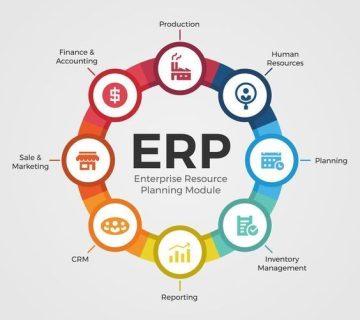Big data is so large and complex that traditional data processing applications cannot process it. As a result, the big data phenomenon has multiplied in recent years, with healthcare being one of the sectors that have seen the most growth.
The role of big data in this sector is growing every day. The health sector can use big data to improve patient care, increase efficiency, and reduce costs. This article will discuss the role of big data in healthcare and how it is changing the industry.
History and Development of Big Data in Healthcare
The history and development of big data in healthcare is a relatively new phenomenon, but it has already seen significant growth. According to a study by IBM, 90% of all the data in the world was created in the last two years. And of that data, 2.5 quintillion bytes are created each day.
One can attribute the growth of big data in healthcare to several factors, including the advancement of technology, the increasing use of mobile devices, and the development of the internet of things (IoT).
The use of big data in healthcare has been snowballing in recent years. According to a report by IDC, the global market for big data and analytics in healthcare is expected to grow from $14.8 billion in 2016 to $34.1 billion by 2021. Several factors drive this growth, including the need to improve patient outcomes, reduce costs, and meet compliance requirements.
Role of Big Data in Healthcare
The role of big data in healthcare is growing every day. There are several ways that big data can improve patient care, increase efficiency, and reduce costs.
One can divide big data in healthcare into three main categories: clinical big data, operational big data, and analytical big data.
Clinical big data includes the data healthcare providers collect from patients, such as medical records, genomic data, and wearables data.
Operational big data includes the data from healthcare providers, such as patient care information, laboratory results, and prescription data.
Analytical big data includes policymakers’ data for analysis and decision-making, including population health data, insurance claims data, and hospital billing data.
Healthcare providers can use big data to improve patient care to make better decisions about patient care.
One of the primary roles of big data in healthcare is to improve patient outcomes. Medics can do this by using big data to identify patterns in the data that they can use to improve care. For example,doctors can use big data to identify patients at risk for a particular condition or who are likely to respond to a specific treatment.
Also, doctors can use big data to identify trends in patient data, such as the types of diseases that are most common in a particular area. This information can help healthcare providers create better treatment plans for their patients.
Healthcare providers can also use it to improve the accuracy of diagnosis. For example, they can use big data to identify patterns in medical images that may not be visible to the human eye. This information can help healthcare providers diagnose diseases more accurately.
Big data has improved the efficiency of healthcare providers.
For example, medical professionals can use big data to identify inefficiencies in the system. This information can help healthcare providers reduce costs and improve patient care. They can do this by identifying areas where costs can be reduced, such as reducing the number of ordered tests or enhancing the efficiency of care.
In addition, medical professionals can also use big data to identify fraud and abuse in the system.
Big data in healthcare has enhanced the accuracy of medical research.
For example, doctors can use big data to identify patterns in patient data that may not be visible to the human eye. This information can help researchers conduct more accurate studies and develop better treatments for diseases.
Big data is critical for healthcare providers in meeting compliance requirements.
For example, they can use it to track the performance of hospitals and other healthcare providers. Doctors can also use it to monitor the quality of care provided.
Trends and future
The role of big data in healthcare is still evolving, but there are several trends and future applications that are worth exploring.
First is the use of big data for precision medicine.
Precision medicine is a new approach to medicine that uses information about a patient’s genes, environment, and lifestyle to personalize the treatment. For example, doctors can use big data to identify patients who are likely to respond to a particular treatment and identify new treatments specifically tailored for a patient’s individual needs.
Another trend is the use of big data for population health management.
Population health management is the process of improving the health of a population by preventing disease and promoting healthy lifestyles. Policymakers can use big data to identify risk factors for diseases, track the progress of diseases, and evaluate the effectiveness of interventions.
The use of big data in healthcare analytics.
Healthcare analytics is the process of analyzing data to improve decision-making. For example, medical professionals can use big data to improve the accuracy of predictions about patient outcomes, find new ways to reduce costs, and identify opportunities to improve the quality of care.
Some of the ways health experts predict big data to grow in the sector include the following:
1. Medical researchers will use big data to develop new treatments and medicines
2. Doctors will use big data to personalize treatments for each patient
3. Medical professionals will use big data to monitor patients’ health in real-time
4. Public health experts will use big data to prevent diseases from spreading
5. Organizations will use big data to improve public health campaigns
6. Researchers will use big data to understand how different treatments work together
7. Hospitals will use big data to reduce the cost of healthcare
8. Doctors will use big data to diagnose diseases earlier
Big data in healthcare has massive potential. It will transform, in many ways, how the population receives healthcare services.
At Softlink Options, we work with all organizations interested in digital solutions to their problems.
CONTACT US in case of any queries. We take pride in the quality of our products and services.


